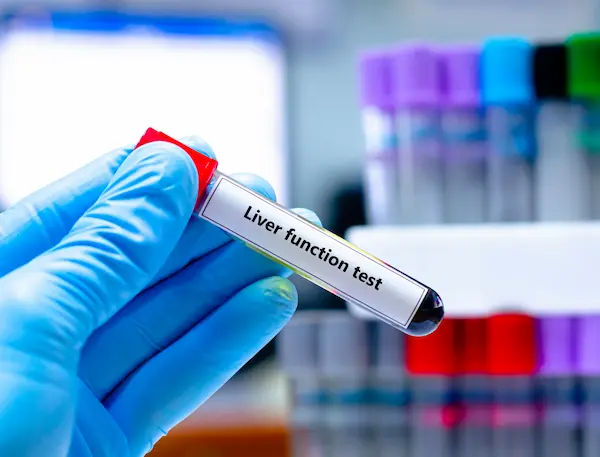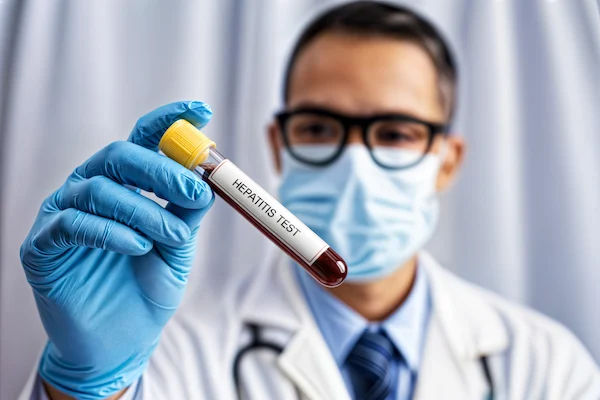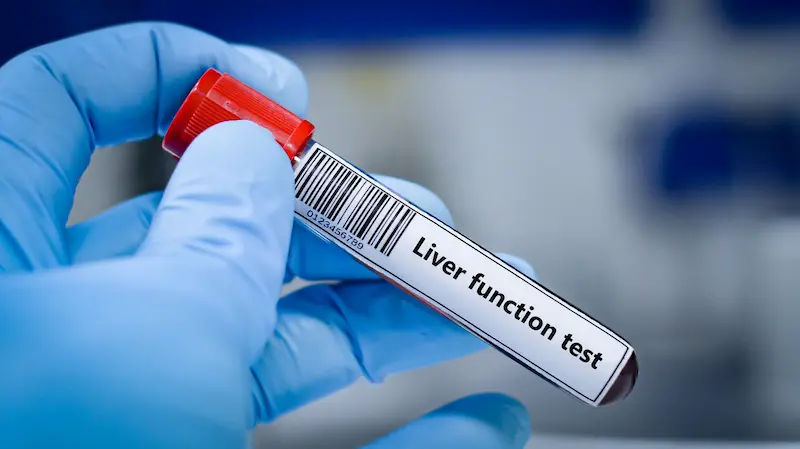HBV Test Overview and Procedures
Know about the hbv test, what is it, why it is important, who should get tested, types, what to expect, result interpretation and lifestyle tips for hbv.

Written by Dr. Dhankecha Mayank Dineshbhai
Reviewed by Dr. Shaik Abdul Kalam MD (Physician)
Last updated on 3rd Sep, 2025

Introduction
If you have been advised to take an HBV (Hepatitis B Virus) test, you may have questions about what it involves and why it’s important. This article will guide you through the basics of HBV testing, its procedures, and what to expect, all in simple, easy-to-understand language.
What is Hepatitis B (HBV)?
Hepatitis B is a viral infection that affects the liver. It can range from a mild illness lasting a few weeks to a serious, long-term condition. Some people recover completely, while others develop chronic hepatitis B, which can lead to liver damage, cirrhosis, or even liver cancer if left untreated.
Consult a Liver Specialist for Personalised Advice
Why is HBV Testing Important?
Early detection of HBV is crucial because:
- It helps in timely treatment to prevent liver damage.
- It reduces the risk of spreading the virus to others.
- It allows doctors to monitor liver health and take preventive steps.
Who Should Get Tested for HBV?
You may need an HBV test if:
- You have symptoms like fatigue, jaundice (yellowing of skin/eyes), dark urine, or abdominal pain
- You’ve been exposed to someone with hepatitis B.
- You’re pregnant (to prevent transmission to the baby).
- You have a high-risk lifestyle (e.g., unprotected sex, sharing needles).
- You’re starting immunosuppressive therapy.
Types of HBV Tests
There are different blood tests to detect HBV:
1. HBsAg (Hepatitis B Surface Antigen) Test
- Purpose: Checks if you currently have an active HBV infection.
Result: - Positive: You have HBV (acute or chronic).
- Negative: No current infection (but further tests may be needed).
2. Anti-HBs (Hepatitis B Surface Antibody) Test
- Purpose: Determines if you’re immune to HBV (from vaccination or past infection).
Result: - Positive: You’re protected against HBV.
- Negative: You may need a vaccination.
3. Anti-HBc (Hepatitis B Core Antibody) Test
- Purpose: Checks if you’ve had a past HBV infection.
Result: - Positive: You were infected at some point (even if recovered).
4. HBV DNA Test
- Purpose: Measures the amount of virus in your blood (viral load).
- Used for: Monitoring chronic HBV and treatment effectiveness.
What to Expect During an HBV Test?
The HBV test is a simple blood test with minimal discomfort:
1. Preparation: Usually, no fasting is needed unless specified by your doctor.
2. Procedure: A healthcare professional will draw a small blood sample from your arm.
3. Time: Takes just a few minutes.
4. Results: Typically available within a few days.
Understanding Your Test Results
- Negative for all markers: No infection or immunity (consider vaccination).
- HBsAg Positive: Current HBV infection (further tests needed).
- Anti-HBs Positive: Immune (from vaccine or past infection).
- Anti-HBc Positive: Past infection (even if recovered).
Your doctor will explain your results and next steps, which may include:
- Monitoring liver function.
- Starting antiviral treatment (if chronic HBV).
- Vaccination (if not immune).
Managing HBV: Lifestyle Tips
If diagnosed with HBV:
- Follow your doctor’s advice on medications and check-ups.
- Avoid alcohol to protect your liver.
- Eat a balanced diet (low-fat, high-fibre foods).
- Practice safe sex to prevent spreading HBV.
Get vaccinated for Hepatitis A (to avoid additional liver stress).
When to See a Doctor?
If you suspect exposure to HBV or have symptoms, consult a doctor immediately. Early detection and treatment can prevent complications.
Final Thoughts
An HBV test is a simple yet powerful way to protect your liver and overall health. If you’re at risk, don’t wait get tested and take control of your well-being.
Consult a Liver Specialist for Personalised Advice
Consult a Liver Specialist for Personalised Advice

Dr. E Prabhakar Sastry
General Physician/ Internal Medicine Specialist
40 Years • MD(Internal Medicine)
Manikonda Jagir
Apollo Clinic, Manikonda, Manikonda Jagir
(175+ Patients)

Dr. Sushith C
General Physician
2 Years • MBBS
Bengaluru
PRESTIGE SHANTHINIKETAN - SOCIETY CLINIC, Bengaluru

Dr. Pavan Kumar Y M
Gastroenterology/gi Medicine Specialist
5 Years • MBBS, MD Medicine, DM Gastroenterology
Bengaluru
Apollo Medical Center, Marathahalli, Bengaluru

Dr Amey Sonavane
Gastroenterology/gi Medicine Specialist
11 Years • "MBBS, DNB (Internal Medicine) DNB (Gastroenterology) "
Mumbai
Apollo Hospitals CBD Belapur, Mumbai
(100+ Patients)

Dr. Aakash Garg
Gastroenterology/gi Medicine Specialist
12 Years • MBBS, DNB (Medicine), DrNB (Gastroentrology).
Bilaspur
Apollo Hospitals Seepat Road, Bilaspur
(150+ Patients)
Consult a Liver Specialist for Personalised Advice

Dr. E Prabhakar Sastry
General Physician/ Internal Medicine Specialist
40 Years • MD(Internal Medicine)
Manikonda Jagir
Apollo Clinic, Manikonda, Manikonda Jagir
(175+ Patients)

Dr. Sushith C
General Physician
2 Years • MBBS
Bengaluru
PRESTIGE SHANTHINIKETAN - SOCIETY CLINIC, Bengaluru

Dr. Pavan Kumar Y M
Gastroenterology/gi Medicine Specialist
5 Years • MBBS, MD Medicine, DM Gastroenterology
Bengaluru
Apollo Medical Center, Marathahalli, Bengaluru

Dr Amey Sonavane
Gastroenterology/gi Medicine Specialist
11 Years • "MBBS, DNB (Internal Medicine) DNB (Gastroenterology) "
Mumbai
Apollo Hospitals CBD Belapur, Mumbai
(100+ Patients)

Dr. Aakash Garg
Gastroenterology/gi Medicine Specialist
12 Years • MBBS, DNB (Medicine), DrNB (Gastroentrology).
Bilaspur
Apollo Hospitals Seepat Road, Bilaspur
(150+ Patients)


.webp)

